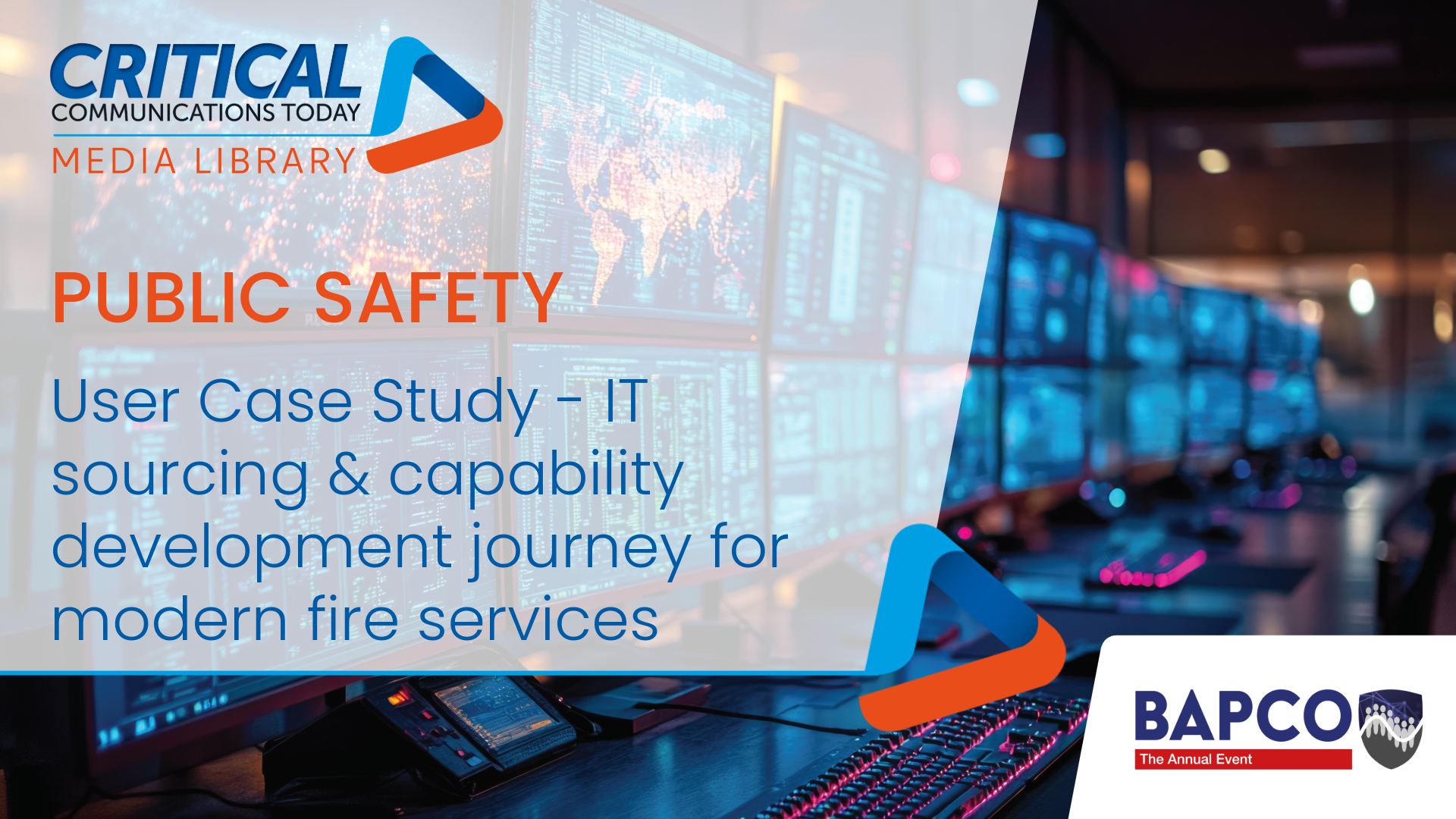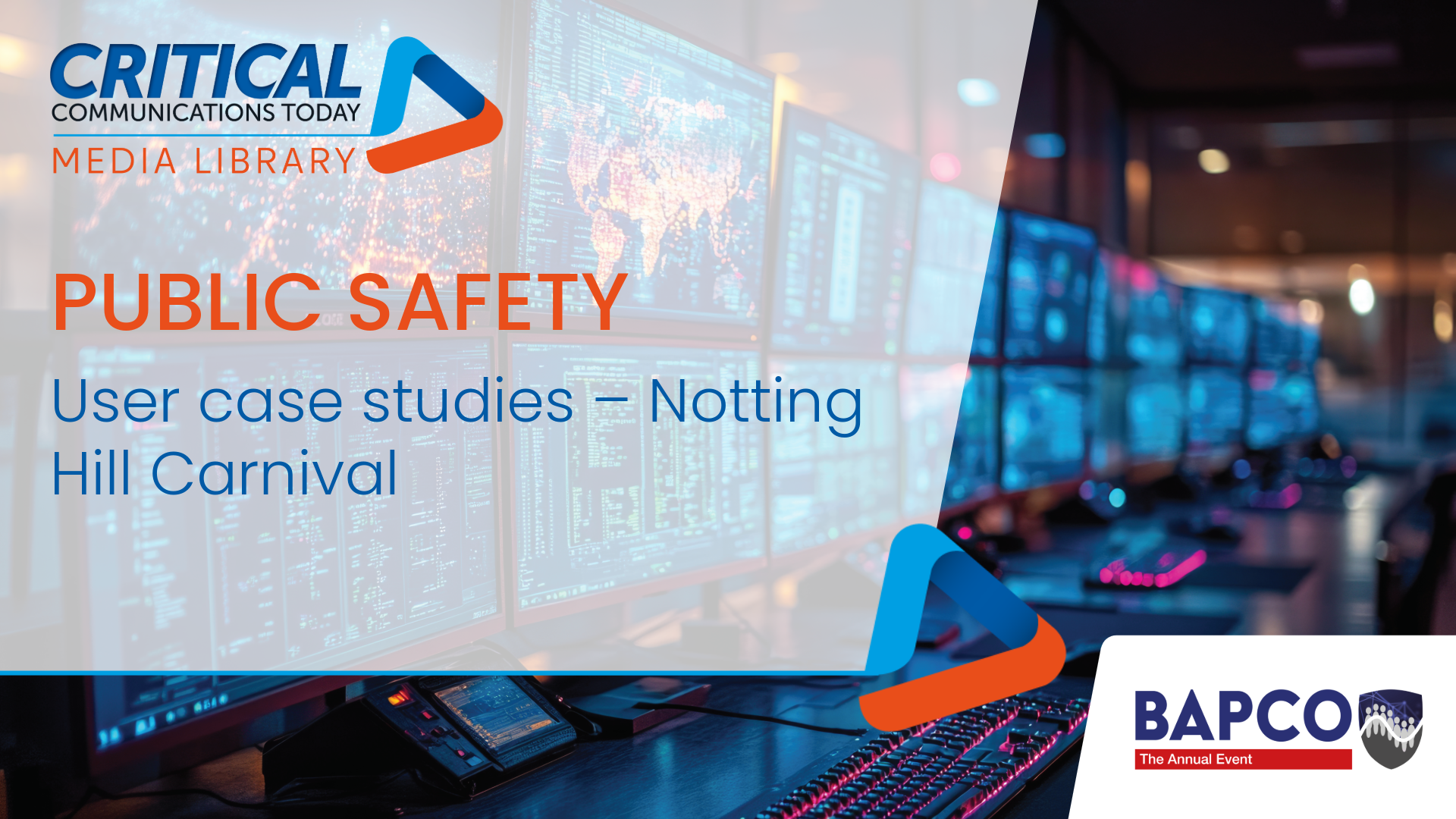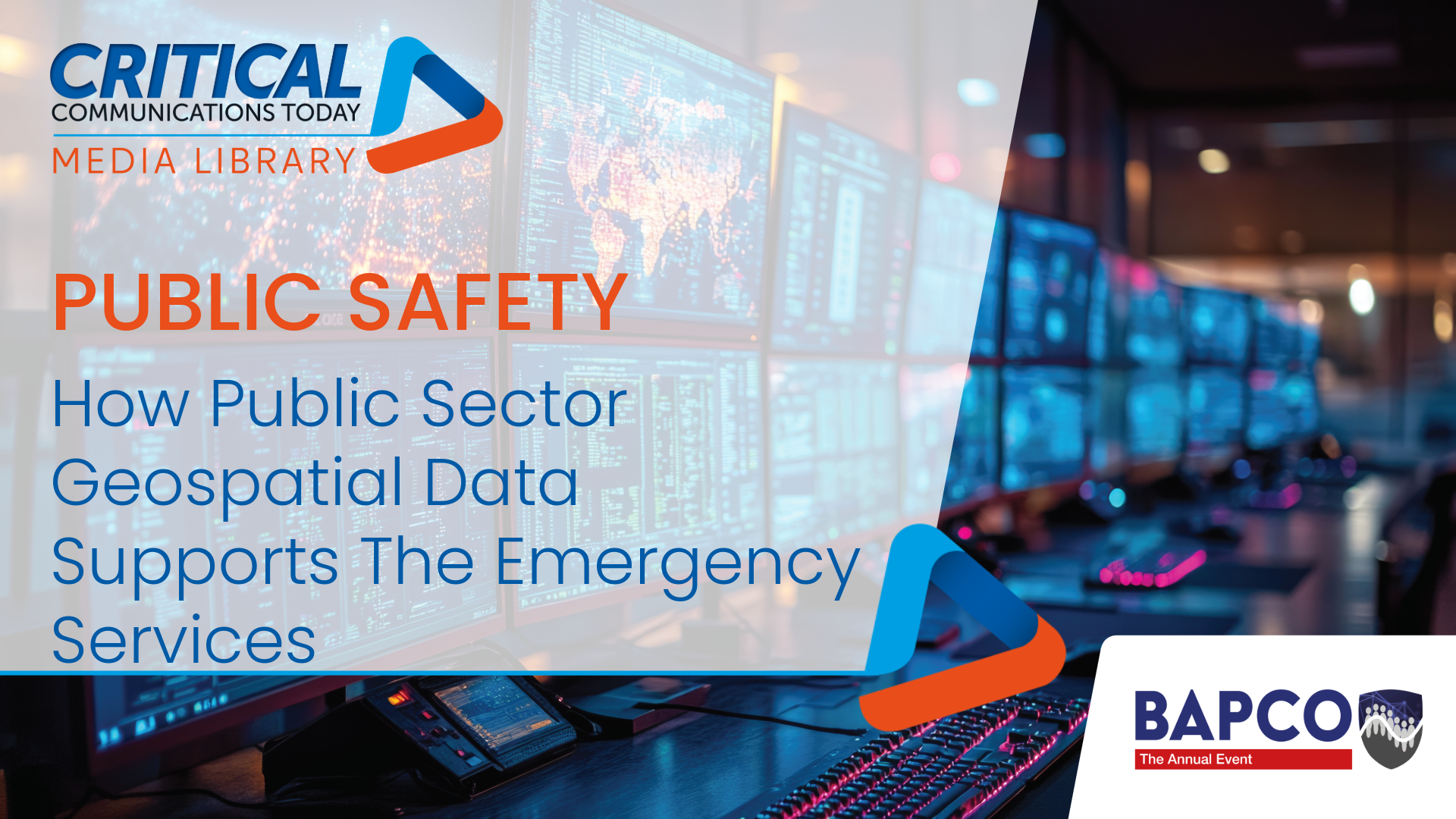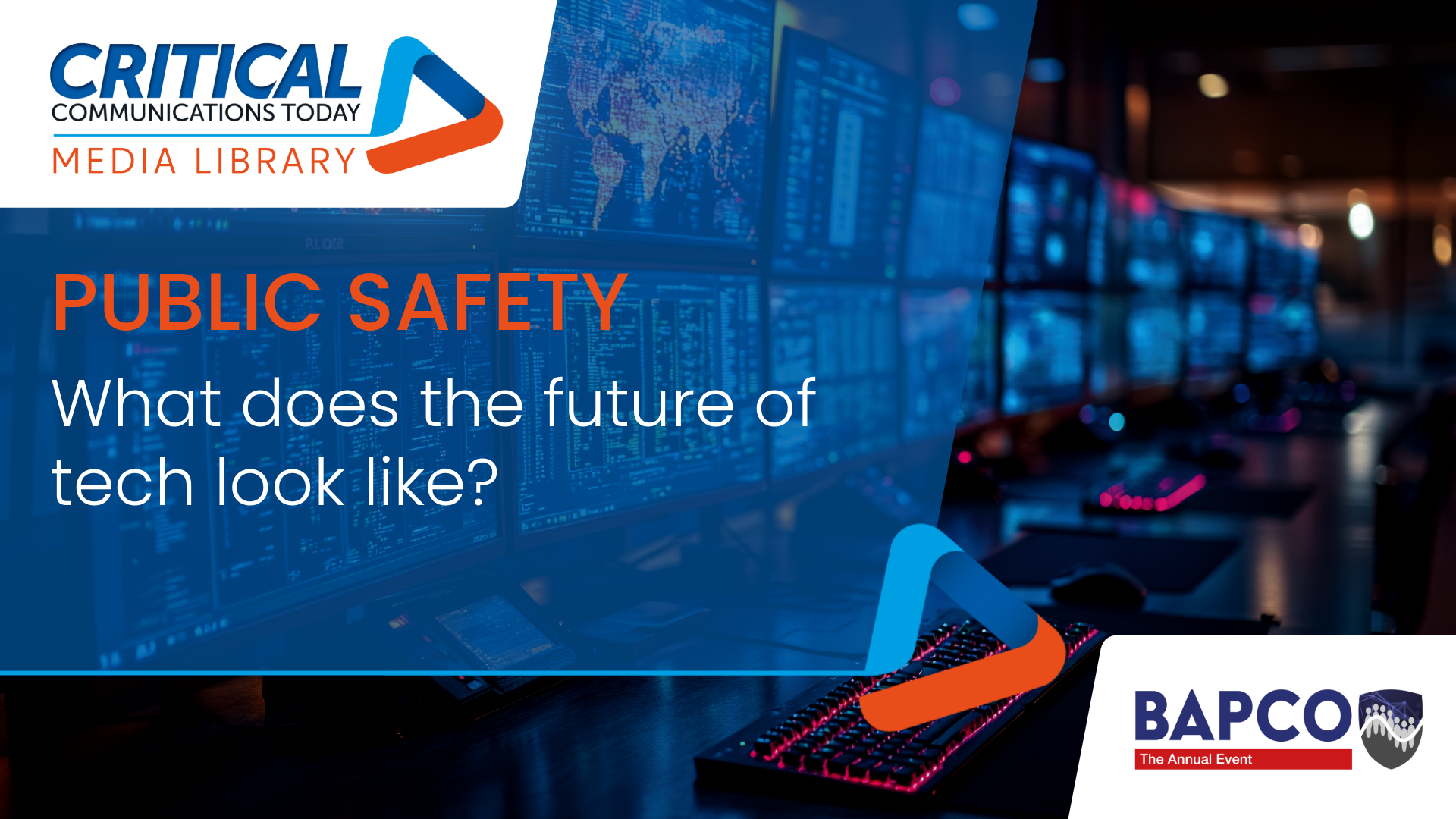And I'd like to introduce to you Aaron Page, senior consultant at A Consulting.
Together with Al Edwards and Craig Selden from Operational Management in the Highways Agency.
Thank you. Yeah.
Hello, good afternoon, everyone. Thank you so much for sticking around.
Today's presentation as we're running a little bit short on time will be high impact,
output focused discussion.
Now I am joined by my favourite clients, National Highways,
and I will ask out to have a quick introduction of himself.
So All Edwards, um, I'm one of the operational managers within the technology section,
service operations.
I, I tend to look after the contract management for the supply chain that supply these services
like radio. Craig.
Hi there, good afternoon everyone. I'm Craig Selden from National Highways
Operation Control Division.
I'm a business systems owner and the deputy radio terminal custodian.
Excellent. And in terms of my role, I provide national
highways for support across radioactivities and technologies.
Now today's presentation is gonna focus around leveraging data,
but before we get into that, it's really important to understand what National Highways
is all about. Well, they keep traffic moving,
they ensure that they get people home safe, whether or not they're going out for work or
going on holiday. Now the first thing to mention here is that
there's over 4500 miles of strategic networks between motorways and major A roads that
National Highways maintains, monitors and supports.
Now they do this by splitting their activities and management processes across seven separate
regions, each with their own control room.
Now, to provide support with this, they have a number of radios.
Now they have over 750 radios for their traffic officer um individuals,
traffic officers, and they have a further 350 devices within their mobile vehicles.
Now to provide further support to this, they have 780 radios to their service
providers that are spread across 13 areas, slightly differently to those seven regions
mentioned earlier.
But perhaps the greatest challenge that they face is that they have over 130 strategic
operational depots, so these roads are spread across all of these locations.
And to actually then communicate, to operate effectively, they have over 82 talk groups for
for service providers as well as their traffic officers.
So a bit of a background to what National Highways does and in terms of their national
radio fleet, I want to highlight a little bit about what we're going to drive through today.
So we want to talk a little bit about mission critical communications and the importance of
radio enhanced knowledge.
So understanding our radio flicks. Now, although this will all focus around our
radio elements, there are a number of key parts we're going to explore.
First is talk group utilisation. How much is a talk group being used and is that
being used too much, and what does this mean?
Airwave into working. How are we working with our partners,
police, fire, ambulance?
Or then make a pit stop in terms of device utilisation.
How much are these being used and can we move them to better use in other locations and
operational positions.
We'll then take a bit of a wider look in terms of the metadata,
the data that describes the radio fleets, are they healthy?
Are they able to supply and support us for the future?
And finally, we'll make a slight segue across to radio for reporting,
a critical example about looking into the trends that our data can describe.
Now our first element is talk group utilisation. This is all about understanding the amount of
traffic for a period of time. We saw that quite a lot earlier today regarding
police forces. Now, from a technology point of view,
what would you like to highlight in terms of the use and the value to you for monitoring
talk groups and also perhaps a little bit about the example we see on the screen?
Well, to be frank.
I get charged with paying the bill.
So, uh, uh, being a stakeholder speaks for itself, I think.
So fully utilise, you know, utilisation of talk groups is high on the agenda and a scorecard
I'll always be monitoring.
What goes on under the bonnet, I, I'm very much dependent upon Aaron,
a scientific and data analysts, and Craig who's very close to the users,
but I need to look after the business case and make sure the tool is fit for purpose.
Yeah, bro, and and in terms of what we have on the screen is a good example of when we monitor
talk groups and we understand how much they're being used,
we can potentially save money if the monitoring highlights perhaps an error on a third party
system, perhaps a timing issue in this instance.
Craig, if we move away from the sort of technology side and a bit more to the
operations, what are your thoughts on the importance of talk group utilisation?
Yeah, well, within, within the operational environment they are very important.
They are the, the voice of National Highways operational communications.
Um, they are quite a challenge. We have a number of talk groups as,
as you mentioned, Aaron, they're split into regions and they consist of sort of hailing
dispatch and incident talk groups.
Um, one of the key points for me in monitoring the talk group utilisation is understanding
when our talk groups become.
Sort of too busy and there's a lot of traffic and it makes it difficult potentially for um
operators to to focus in on particular incidents when there's a lot of chatter um
between traffic officers um dealing with with incidents.
So if that does occur and we we can see this from the data,
we try to move those.
Um, busy talk groups a way to more localised, uh, incident specific talk groups where these
will in turn sort of fire up less, uh, base stations and there'll be less monitoring and
again saving us money for the, uh, cost provision and less traffic used.
100%. So being able to understand what we're doing in
terms of talk of utilisation, monitoring those talk groups,
we can have higher efficiency and save money.
Excellent, so the next element we want to bring forward is airwave interworking,
understanding the interactions between national highways and its partners,
police, fire. Ambulance and a quick shout out,
of course, to Airwave, who has been able to provide us bespoke information to be able to
make this data analytics possible. And the key highlight from this is the fact
that there's over 35,000 worth of call minutes from non-NH
users on those incident talk groups. There's a lot of communication,
there's a lot of actions going on, a lot of knowledge sharing.
Craig, perhaps I can come to yourself first on this one.
Why, why is interworking important to you from an operational perspective?
Well, yeah, operationally, obviously it is very important to national highways to have that
interoperability and um communication with the other emergency services such as the ambulance,
fire and police.
Um, we're often first responders on the scene for a road traffic collision,
so having that robust communication method in place um.
With the other emergency services is paramount to clear incidents safely and concisely as we
can, um.
We have sort of governance behind our interactions with um the other emergency
services. We have memorandums of understanding,
um, that we've got with police forces, so we understand the sort of data we can share when
into working and how and when to communicate.
Um, we are sort of looking to explore this a little bit further,
so we're making inroads into, uh, attending different uh.
Police user groups and radio user groups. Uh, we're currently attending the,
the Northwest one, and we're sharing sort of best practises that we do on a national level
with, uh, the Northwest regions, and that's certainly something we'd like to explore
further. So if, uh, anybody else is interested in
national highways as a stakeholder in that space, then,
then please let us know. Excellent, so obviously the operational side is
quite, quite an easy sell.
Now from the technological point of view, um, oh, why is,
why is interworking important to yourself and perhaps a bit of a,
bit of a leading element in terms of some of the surveys we've done in understanding that
provision. Yeah, well, 100% we're definitely dependent on,
on feedback. Let's face it, the old premise of the national
highways was to support the police, help discharge the police from a lot of the managing
the motorway activities, allowing them to concentrate on criminality,
so we look after running of the motorway in that respect.
So with doing that, it made sense for us to take on a lot of the tools that the police had
in the first instance, radio being one of, there are other tools that we use,
we've replicated. But in terms of the experience of using the
technology, we really need to learn from them.
What it's been like that from day one and we're always monitoring and updating that information,
especially as new technologies come on board.
So the, the working groups and into work we've got MOUs out there,
uh, as everybody else does, but we, we really are dependent on refining what we do to better
serve what we need to deliver on behalf of the police.
100%. I think the key element here is the fact that
by engaging with police user groups, by talking to the pub and getting support from them,
we can ensure that the provision between national highways and our police forces is
effective and we deliver what is needed to on the strategic road network.
Next up we have a little bit on radio utilisation.
This is all about understanding if a radio is being used where it is needed most.
Now National Highways has over 2000 radios, but the geographical space of it is the true
challenge, getting it from one end of the country to where it is needed most.
Craig, from an operational point of view, radio utilisation must be quite critical to you.
It is. It's, uh, probably my, my favourite data set.
Is that, is that a bit geeky? I'm not sure.
Um, so yeah, for my role within, um, as a deputy radio terminal custodian,
the radio utilisation data is very important.
It really helps us understand when and where our radios are when they were last,
um, turned on, what sort of location. So this can be really,
really important when we're dealing with, uh, auditing, and that's obviously,
um, Making sure we're compliant with uh the the airway code of practise and it allows us to
drill down into the weeds really on specific radios so we can uh locate them,
audit them and sort of manage our, our asset movement.
Um, we can also sort of tell, uh, obviously how, how often radios are being utilised and whether
there's any overutilization or underutilization, and what we've done in the recent past is
understood that some of our service provider colleagues who use Airwave on our behalf,
there was a bit of underutilization.
For them, so we were able to loan some radios for Operation Brock for national highways
instead of going out and procuring more.
So there was certainly a cost saving by analysing this data and ensuring that we can
move our fleet instead of sort of procuring more when when not necessary.
Excellent. I mean at the end of the day, it's all about
ensuring that your radio fleet works for you.
Now, from a technology perspective, how, how's radio utilisation fit in with yourself?
Well, first and foremost, uh, we don't generally, we don't personal issue radios.
Our radios are pulled, so in a 24/7 period, you know, they have to be laboured over three
different shift handovers across 7 regions nationally.
So talk about utilising of radios they're used to the max,
should we, I think I can safely say that.
Um, but with that, we also have a, a turnover rate in in comparison to the police is probably
a bit different, it's probably higher.
So there's a need to top up radio practise, uh, talk time and principles,
uh, because as we know, that comes down to utilisation, and the cost,
that thing that I keep looking at the bottom line is how much it's costing us to maintain
this critical tool is highly essential.
So anything we can do to refresh the practises.
And make the operational reds more efficient is on my side.
Excellent, thank you, Al.
Now a slightly wider concept radio data, the metadata that describes your radio fleet
understanding its health and utilisation.
Al, I'll come back to you straight away in terms of the technology deployment.
What are your thoughts? How do you use radio data that we're able to
analyse and provide?
well, in So perhaps from a point of view of some of the strategies for future activities of
radios and batteries and such.
OK, so yeah, once, once again, I'm charged with not only providing the service and making sure
it's running, but looking at the future as well.
So the likes of uh Aaron again at the top end, I'm always um dependent on them looking at the
front end of technology or any changes that we can make with what we've already got in terms
of the kit itself, um.
The the reports that we get off that go with that for data usage is highly essential because
I talk about traffic officer service, but there are different streams of different users and
departments with radios that use them in a slightly different way.
Um, so the, the, the total belief is shared across them,
and I need to make sure that each user, each stakeholder in that use is using it efficiently.
100%, so it all ties back to this idea of you're able to understand the health of your
fleet and how it operates, you can understand the future strategies,
whether that's new radios or whether you can sweat assets to perhaps when ESN is deployed,
and similarly, in terms of consumable activities such as batteries.
Now, Craig, perhaps you can pull out a bit more of a specific example of the importance of
radio data as a perhaps a bit a bit of a trend.
Yeah, so, uh, we, we use this uh this sort of radio data to understand um behaviours and
trends of our radio fleet, as, as I was saying that faults do happen,
radios will get damaged and they will need to be repaired as much as I'd like to wrap them up
in cotton wool. It happens in an operational level,
so it's important that we analyse this this data to understand um.
Sort of trends and try and bring down our maintenance costs if that's um there's a
particular. Uh, behaviour or something that's um uh maybe
um causing stress to the asset, then we can have those conversations with the end users
around provisions like cases and things like that.
So it's, it's really important that we, as, as, as Aaron was saying,
that we try and sweat the asset and, and bring down our maintenance costs if we can,
before looking at a full scale procurement exercise when that might not be necessary.
100% fundamentally if you're able to track the data, we can produce a story.
If we can produce a story, we can understand how to avoid um and assess those current
problems. Now we've talked for a number of different
topics today, and I'm going to quickly run through them.
We've highlighted that you can save money potentially by monitoring talk groups by
ensuring that the provision is correct and appropriate.
We've highlighted that talk group utilisation is exceptionally important by bringing that
down, we can lower costs and we can also ensure that the number of people who are hearing that
message are the ones that actually need to hear it so we improve operational efficiency.
We touched on the idea of interworking how much interworking National Highways does with its
third party, um sorry, emergency services.
We also highlighted the operational requirements of managing a pooled radio fleet
rather than a personal issue, and that need to move it around um a country geographically.
The importance of radiometrics, the idea of is a radio in um in warranty?
Is it old? Is it aged?
What does this mean for our future strategic plannings and our future procurement activities?
And of course, Craig has just highlighted the idea of tracked trends.
What happens when we have that data, we have that story,
and we can build out that message.
What should we be doing to lower perhaps some of those faults or issues,
or similarly, understanding the trends in talk groups as well.
Now I think this is a great time, Craig, to quickly introduce the National Radio
Consistency group from National Highways.
No problem. Yes, so it's, uh, it's a group that we've
re-established in the last couple of years.
Um, it's a group that I chair and it's an internal meeting uh for national highways,
uh, with all our interested radio stakeholders, and we really use it as a platform to drive
consistency. And uh best practises, certainly a decision
making forum where we can push through those uh radio initiatives that um sometimes just need
agreement on a national level from our different regional partners.
Um, there's, there's biscuits, tea and coffee available, so if people would like to,
uh, to learn a little bit more about the NRCG then, then please let me know after the session.
Excellent, thank you, Craig.
So that is the end of our presentation. I wanna thank everyone for coming along.
As a side note, I will be running a roundtable discussion on AI tomorrow at 10:30 in the AI
village. If you're interested in using AI operationally
as a user group and more widely, if you want to, if you have any problems or considerations
related to this presentation or more widely control room activities,
we are able to offer some free consultancy at the moment at I6 in terms of a drop in sessions.
Please do come by. So do we have any questions from the audience?
No, I've got one for you.
You've talked about all the activities that you've been doing.
If you only had to implement one of those activities, which one would it be and why?
Yeah. Craig, would you like to start off?
Uh, yes, I, it'll be the, the radio utilisation um data that uh I,
I talked about earlier for, for my role ensuring that um we're compliant with the
airway code of practise, knowing where our assets are,
uh, with that utilisation data and, and.
On the back of that with uh helping with our audit processes is really important.
So that's that's the sort of the the one data set that is sort of paramount for me in my role.
Thank you. And one for you, we talked about the
differences are you working closely with the police.
What are the differences between the police on the highway and the National Highways Agency?
Where do your roles differ?
Right, OK, so it's more on the legal side of things actually,
so. It's a, there's a clean slate in between
managing the network and managing the network whilst reduction of criminology at the same
time. So it's about keeping traffic moving,
shall we say. But uh our number one imperative within the
business is health and safety anyway.
um, so, uh, and there's lots of themes out there, home safe,
well, etc. that's out there.
So it's about keeping people safe and, and, and really relishing it and um celebrating that
lower number of fatalities on our network. Excellent, thank you.
OK, if you'd like to join us in thanking our presenters.
Thank you.
Leveraging Data for Radio Fleet Optimisation
4 May 2025
User case study on leveraging data for radio fleet optimisation at the 2025 BAPCO Annual Event.
The presenters are:
- Aaron Page, Senior Consultant - Actica Consulting
- Al Edwards, Operations Manager - National Highways
- Craig Seldon, Business Systems Owner/Deputy Radio Terminal Custodian - National Highways
The BAPCO Annual Event is the UK's leading public safety event. It is your gateway to discovering the latest advancements, networking with industry experts, and exploring cutting-edge technologies that are transforming the way we ensure public safety.




